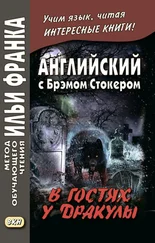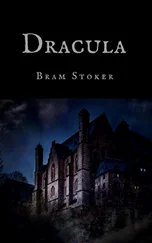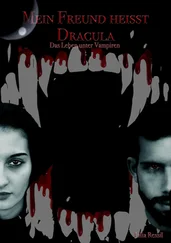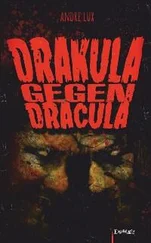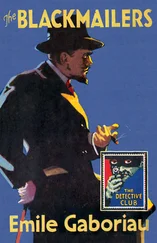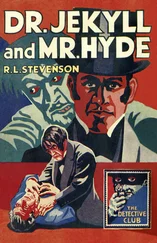The philosopher was frightened, especially when he noticed a strange glitter in her eyes. ‘Granny, what is it? Go – go away – God bless you!’ he cried.
The old woman said not a word, but tried to clutch him in her arms.
He leapt on to his feet, intending to escape; but the old woman stood in the doorway, fixed her glittering eyes on him and again began approaching him.
The philosopher tried to push her back with his hands, but to his surprise found that his arms would not rise, his legs would not move, and he perceived with horror that even his voice would not obey him; words hovered on his lips without a sound. He heard nothing but the beating of his heart. He saw the old woman approach him. She folded his arms, bent his head down, leapt with the swiftness of a cat upon his back, and struck him with a broom on the side; and he, prancing like a horse, carried her on his shoulders. All this happened so quickly that the philosopher scarcely knew what he was doing. He clutched his knees in both hands, trying to stop his legs from moving, but to his extreme amazement they were lifted against his will and executed capers more swiftly than a Circassian racer. Only when they had left the farm, and the wide plain lay stretched before them with a forest black as coal on one side, he said to himself: ‘Aha! she’s a witch!’
The waning crescent of the moon was shining in the sky. The timid radiance of midnight lay mistily over the earth, light as a transparent veil. The forests, the meadows, the sky, the dales, all seemed as though slumbering with open eyes; not a breeze fluttered anywhere; there was a damp warmth in the freshness of the night; the shadows of the trees and bushes fell on the sloping plain in pointed wedge shapes like comets. Such was the night when Homa Brut, the philosopher, set off galloping with a mysterious rider on his back. He was aware of an exhausting, unpleasant, and at the same time, voluptuous sensation assailing his heart. He bent his head and saw that the grass which had been almost under his feet seemed growing at a depth far away, and that above it there lay water, transparent as a mountain stream, and the grass seemed to be at the bottom of a clear sea, limpid to its very depths; anyway, he saw clearly in it his own reflection with the old woman sitting on his back. He saw shining there a sun instead of the moon; he heard the bluebells ringing as they bent their little heads; he saw a water-nymph float out from behind the reeds, there was the gleam of her leg and back, rounded and supple, all brightness and shimmering. She turned towards him and now her face came nearer, with eyes clear, sparkling, keen, with singing that pierced to the heart; now it was on the surface, and shaking with sparkling laughter it moved away; and now she turned on her back, and her cloud-like breasts, dead-white like unglazed china, gleamed in the sun at the edges of their white, soft and supple roundness. Little bubbles of water like beads bedewed them. She was all quivering and laughing in the water …
Did he see this or did he not? Was he awake or dreaming? But what was that? The wind or music? It is ringing and ringing and eddying and coming closer and piercing to his heart with an insufferable thrill …
‘What does it mean?’ the philosopher wondered, looking down as he flew along, full speed. The sweat was streaming from him. He was aware of a fiendishly voluptuous feeling, he felt a stabbing, exhaustingly terrible delight. It often seemed to him as though his heart had melted away, and with terror he clutched at it. Worn out, desperate, he began trying to recall all the prayers he knew. He went through all the exorcisms against evil spirits, and all at once felt somewhat refreshed; he felt that his step was growing slower, the witch’s hold upon his back seemed feebler, thick grass touched him, and now he saw nothing extraordinary in it. The clear, crescent moon was shining in the sky.
‘Good!’ the philosopher Homa thought to himself, and he began repeating the exorcisms almost aloud. At last, quick as lightning, he sprang from under the old woman and in his turn leapt on her back. The old woman, with a tiny tripping step, ran so fast that her rider could scarcely breathe. The earth flashed by under him; everything was clear in the moonlight, though the moon was not full; the ground was smooth, but everything flashed by so rapidly that it was confused and indistinct. He snatched up a piece of wood that lay on the road and began whacking the old woman with all his might. She uttered wild howls; at first they were angry and menacing, then they grew fainter, sweeter, clearer, then rang out gently like delicate silver bells that stabbed him to the heart; and the thought flashed through his mind: was it really an old woman?
‘Oh, I can do no more!’ she murmured, and sank exhausted on the ground.
He stood up and looked into her face (there was the glow of sunrise, and the golden domes of the Kiev churches were gleaming in the distance): before him lay a lovely creature with luxuriant tresses all in disorder and eyelashes as long as arrows. Senseless she tossed her bare white arms and moaned, looking upwards with eyes full of tears.
Homa trembled like a leaf on a tree; he was overcome by pity and a strange emotion and timidity, feelings he could not himself explain. He set off running, full speed. His heart throbbed uneasily as he went, and he could not account for the strange new feeling that had taken possession of it. He did not want to go back to the farm; he hastened to Kiev, pondering all the way on this incomprehensible adventure.
There was scarcely a student left in the town. All had dispersed about the countryside, either to situations, or simply without them; because in the villages of Little Russia they could get dumplings, cheese, sour cream, and puddings as big as a hat without paying a kopeck for them. The big rambling house in which the students were lodged was absolutely empty, and although the philosopher rummaged in every corner, and even felt in all the holes and cracks in the roof, he could not find a bit of bacon or even a stale roll such as were commonly hidden there by the students.
The philosopher, however, soon found means to improve his lot: he walked whistling three times through the market, finally winked at a young widow in a yellow bonnet who was selling ribbons, shot and wheels – and was that very day regaled with wheat dumplings, a chicken … in short, there is no telling what was on the table laid for him in a little mud house in the middle of a cherry orchard.
That same evening the philosopher was seen in a tavern: he was lying on the bench, smoking a pipe as his habit was, and in the sight of all he flung the Jew who kept the house a gold coin. A mug stood before him. He looked at all that came in and went out with eyes full of cool satisfaction, and thought no more of his extraordinary adventure.
Meanwhile rumours were circulating everywhere that the daughter of one of the richest Cossack sotniks , fn1who lived nearly forty miles from Kiev, had returned one day from a walk, terribly injured, hardly able to crawl home to her father’s house, was lying at the point of death, and had expressed a wish that one of the Kiev seminarists, Homa Brut, should read the prayers over her and the psalms for three days after her death. The philosopher heard of this from the rector himself, who summoned him to his room and informed him that he was to set off on the journey without any delay, that the noble sotnik had sent servants and a carriage to fetch him.
The philosopher shuddered from an unaccountable feeling which he could not have explained to himself. A dark presentiment told him that something evil was awaiting him. Without knowing why, he bluntly declared that he would not go.
‘Listen, Domine Homa!’ said the rector. (On some occasions he expressed himself very courteously with those under his authority.) ‘Who the devil is asking you whether you want to go or not? All I have to tell you is that if you go on jibbing and making difficulties, I’ll order you such a whacking with a young birch tree, on your back and the rest of you, that there will be no need for you to go to the bath after.’
Читать дальше



